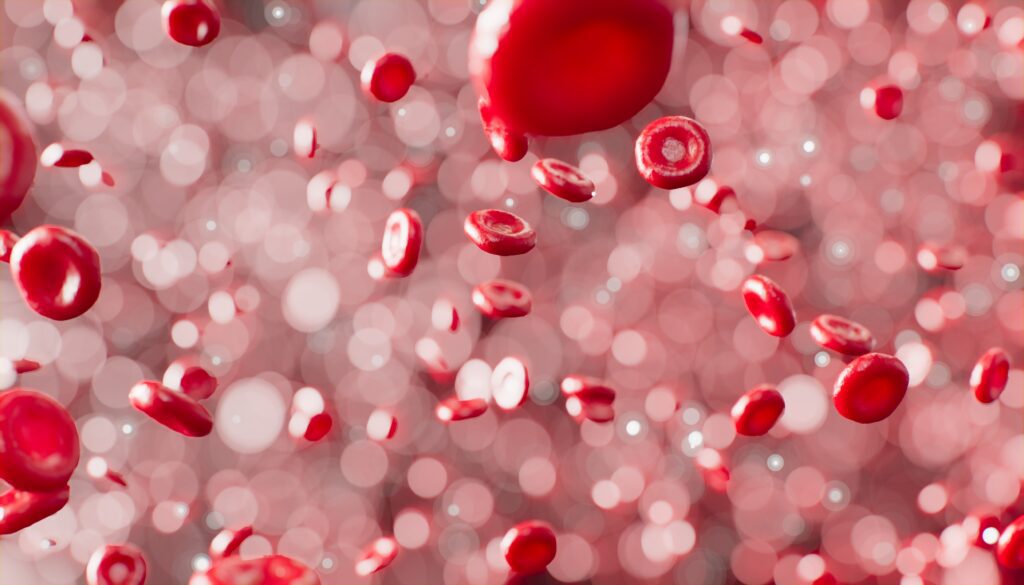By Michelle Shapiro and Nicki Parlitsis | Read Time: 10 Minutes
Lowering inflammation can naturally help reduce depression and improve mental health
We know that inflammation can be a cause – and effect – of many disease processes in the body, including mental health issues such as anxiety and depression.
There is typically a combination of factors that lead to a state of disease within the body, so inflammation will likely be accompanied by other contributing factors as well.

What is Inflammation?
Inflammation is the body’s immune system response to an irritant. The immune system sends many different cells to fight, releasing hormones and other messengers that cause different effects within the body.
The goal is to attack the irritant, whether it’s a germ, foreign object, or injury. These compounds help to increase blood flow (to bring more immune cells to the site) and light up pain signals (telling your brain to protect the area). They also increase fluid, resulting in a swelling response.
What is the Difference Between Acute and Chronic Inflammation?
Acute inflammation is an appropriate response to a pathogen, injury, or toxin, allowing the body to fight off its attacker or heal a wound and restore homeostasis. (Think: a common cold, splinter, or broken arm). This should last hours, days, or a few weeks. However, when this damaging stimulus persists, the inflammation turns chronic.
Chronic inflammation is associated with chronic disease. (Think: rheumatoid arthritis, cardiovascular diseases, inflammatory bowel disease, depression). The body’s intentions are good – to use the inflammation to restore the body back to health – but it unfortunately persists until the underlying cause is addressed.
In many of these diseases, the standard procedures work to treat the inflammation, not necessarily the root of why the inflammation is occurring.

How do we Assess Chronic Inflammation?
Signs and Symptoms
While this post is focused on mental health, the presence of inflammation will likely come along with other symptoms as well. Some of these are written off as symptoms of “simply aging,” when there is really a deeper underlying issue:
- Body pain, joint pain, muscle pain
- Chronic fatigue, insomnia
- Depression, anxiety, mood disorders
- GI complications (constipation, diarrhea, acid reflux)
- Weight gain or loss (typically weight gain)
- Frequent infections
Lab Testing
Blood levels of certain compounds can help to assess the degree of inflammation the body is experiencing.
- C-reactive protein (hsCRP), Erythrocyte sedimentation rate (ESR), and Fibrinogen are a few inflammatory markers that can be measured in the blood to determine a person’s inflammatory status.
- Once a high level of inflammation is confirmed, the next step is to determine why that process is occurring. Your provider may then go on to order further testing to get to the source of the problem. They may order tests including a lipid panel (cholesterol and triglyceride levels), omega-3 index, and/or homocysteine.
While labwork is helpful to get us closer to the source of the problem, we still need to dig further to the root in order to successfully restore the body to a state of optimal health. This is why a thorough provider will use a combination of lab tests, signs/symptoms, and medical history to determine an appropriate treatment plan.

7 Ways to Reduce Inflammation and Naturally Improve Mental Health
As a general rule, the basics always need to be addressed in order to help the body get back to an optimal state of health. By creating a healthy foundation, we can reduce inflammation naturally and improve mental health symptoms such as anxiety and depression. These foundations include diet, sleep, hydration, stress, movement, digestion, and environment.
1. Eat an anti-inflammatory diet
An anti-inflammatory diet incorporates an abundance of whole, unprocessed foods, including fruits, vegetables, high quality proteins, whole grains, fiber, and healthy fats. Reduce intake of ultra-processed foods, sugar (all kinds), refined flours, unhealthy fats, caffeine, and alcohol. Avoid smoking.
If there is a more serious GI-related inflammatory disease at play, there may be more specific, individualized diet recommendations someone may need to follow. Seeing a Gastroenterologist and Registered Dietitian are helpful if that is the case.
2. Aim for 8-9 hours of quality sleep
Sleep is key for our immune system, stress management, and mental health. Here are some tips to improve your body’s recovery and reduce depression naturally through sleep:
- Reduce distractions before bed (screen use, loud noises, bright light)
- Set a cool temperature (65-68 degrees)
- Keep the room dark (use an eye mask or blackout curtains)
- Maintain a consistent sleep/wake schedule (same time each night/morning)
- Reduce coffee and alcohol consumption as much as possible
- Get 30min of natural sunlight each morning to restore your body’s natural circadian rhythm
3. Hydrate!
Drink at least half your body weight in ounces per day, ideally including electrolytes for optimal hydration.
(Bumbleroot foods electrolyte packets – 10% off with code WELLNESSMAP)
4. Manage your stress levels
Managing stress is crucial for reducing inflammation and may include a variety of approaches depending on the person. Make time to destress for even 5-10 minutes each day, journal, meditate, see a mental health provider, and/or practice gratitude each morning.
If you’re a very active person, make sure to schedule in 1-2 rest days per week to allow your body time to recover.
5. Get moving
Move your body every day, even if it is just walking or stretching for 5-10 minutes. Physical movement can reduce symptoms of depression and increase neurotransmitters that improve our mood and lower levels of inflammation.
Incorporate a combination of aerobic movement throughout the week (where your breathing increases), and strength/ resistance training at least 2 times per week.
6. Optimize your digestion
Optimal bowel movements occur 1-2 times each day, and are fully-formed, with no straining. Prop your feet up using a stool or squatty potty and allow yourself 10-15 minutes in the morning to sit in the bathroom uninterrupted (if possible).
If there is a more serious GI-related inflammatory disease at play, that needs to be addressed as well.
See our post on 10 Steps to Improve Digestion and Gut Health
7. Remove environmental toxicants
Reduce toxicants as much as possible by using a water filter, air filter, avoiding non-stick cookware, and choosing natural cleaning products. It’s impossible to completely avoid these pollutants in our modern world, so do the best you can!
Bottom Line
Signs and symptoms are your body’s way of telling you something is wrong. If you struggle with depression or anxiety and also experience some other signs and symptoms listed above, talk to your provider about doing further lab testing to assess for inflammation.
Targeting inflammation takes a multidimensional approach including all of the diet & lifestyle factors listed above, along with any protocols your provider decides are right for you.
Do you want to reduce anxiety, depression, and inflammation in a more natural and sustainable way?
By working with one of our Registered Dietitian Nutritionists at Michelle Shapiro Nutrition LLC, you will receive personalized recommendations and one-on-one nutritional counseling to help you reach attainable goals in a way that fits your lifestyle.
If you want a more self-paced approach to reducing anxiety naturally, you can join our online program Anxiety Proof for step-by-step lessons at your own pace!
References
- InformedHealth.org [Internet]. Cologne, Germany: Institute for Quality and Efficiency in Health Care (IQWiG); 2006-. What is an inflammation? 2010 Nov 23 [Updated 2018 Feb 22]. Available from: https://www.ncbi.nlm.nih.gov/books/NBK279298/
- Pahwa R, Goyal A, Jialal I. Chronic Inflammation. [Updated 2022 Aug 8]. In: StatPearls [Internet]. Treasure Island (FL): StatPearls Publishing; 2022 Jan-. Available from: https://www.ncbi.nlm.nih.gov/books/NBK493173/